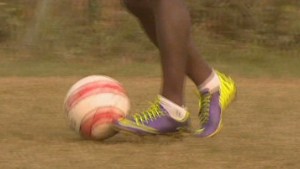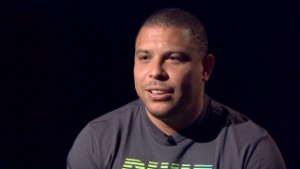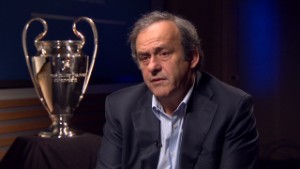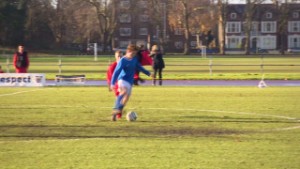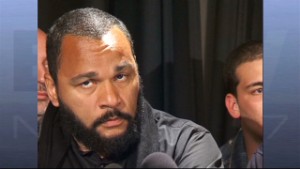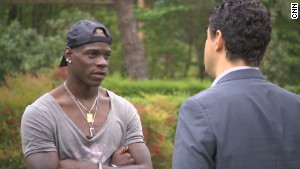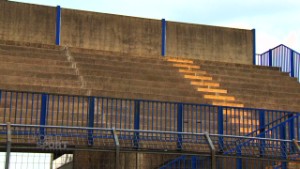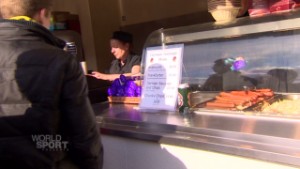White House: No, #BringBackOurGirls won’t sway the kidnappers
Demonstrators hold banners as they protest about the kidnapping of girls in Nigeria, near the Nigerian High Commission in London, Friday, May 9, 2014. Global outrage against the abduction of more than 200 Nigerian girls by Islamist militant sect Boko Haram heated up Thursday, as a social media campaign drew worldwide support. (AP Photo/Kirsty Wigglesworth)
The White House on Monday defended the #BringBackOurGirls social media campaign as a valuable part of the global response to the abduction of more than 200 Nigerian girls. But spokesman Jay Carney dismissed suggestions that hashtag activism would lead Boko Haram kidnappers to free their hostages.
“No, I wouldn’t say that,” Carney told reporters at his daily briefing when asked whether the outpouring of support would lead the extremists to set the girls free.
“We're not anything but realistic about the challenge here. It's extremely difficult,” the spokesman said. “The area that the Nigerian government is looking for the girls in constitutes roughly the size of New England.”
Still, “I think that highlighting the situation there and the tragedy that the abduction of those girls represents helps focus attention on the matter and helps, I think, focus the attention of those who would want to assist in the finding and recovery of those girls,” Carney said.
That appeared to be a reference to the sluggish response the government of Nigerian President Goodluck Jonathan. Carney, Secretary of State John Kerry and others criticized Jonathan’s handling of the crisis sharply last week even as they announced the deployment of a U.S. team to help with search and rescue.
Katie Couric: The international effort to #BringBackOurGirls
In private, U.S. officials said the social media campaign had helped to pressure Jonathan’s government finally to accept repeated U.S. offers of help with the rescue effort — even before first lady Michelle Obama lent her voice to the cause.
Related Stories
- Pope Francis Tweets His Support For The Missing Chibok Girls #BringBackOurGirls
- US announces aid to Nigeria in mass kidnapping of girls Yahoo News
- World #day: Pictures and Videos from the Second #BringBackOurGirls Protest in London
- Katherine Schwarzenegger shared publicly #BringBackOurGirls
- World 1st lady Michelle Obama #BringBackOurGirls will remind you of drone horro
“We're not anything but realistic about the challenge here. It's extremely difficult,” the spokesman said. “The area that the Nigerian government is looking for the girls in constitutes roughly the size of New England.”
Still, “I think that highlighting the situation there and the tragedy that the abduction of those girls represents helps focus attention on the matter and helps, I think, focus the attention of those who would want to assist in the finding and recovery of those girls,” Carney said.
That appeared to be a reference to the sluggish response the government of Nigerian President Goodluck Jonathan. Carney, Secretary of State John Kerry and others criticized Jonathan’s handling of the crisis sharply last week even as they announced the deployment of a U.S. team to help with search and rescue.
Katie Couric: The international effort to #BringBackOurGirls
In private, U.S. officials said the social media campaign had helped to pressure Jonathan’s government finally to accept repeated U.S. offers of help with the rescue effort — even before first lady Michelle Obama lent her voice to the cause.
Carney said the American team includes five State Department officials, including a team leader, two strategic communications experts, a civilian security expert and a regional medical support officer. It also includes 10 Defense Department “planners and advisers” who were already in Nigeria and an additional seven brought in from AFRICOM, the regional U.S. military command in Africa. And the team includes four FBI officials “with expertise in safe recovery, negotiations and preventing future kidnappings,” Carney said.
“They are digging in on the search and coordinating closely with the Nigerian government, and you know, we obviously want to do whatever we can to assist that effort,” he said.

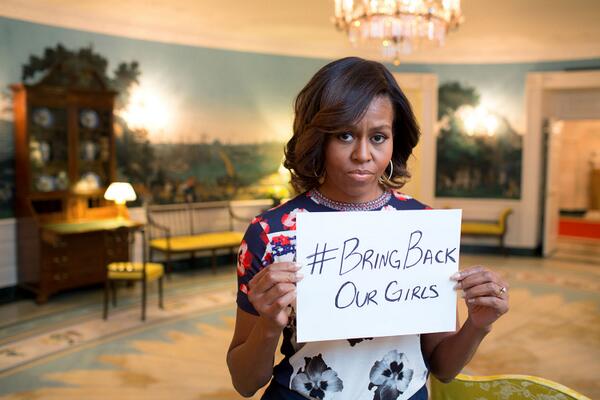
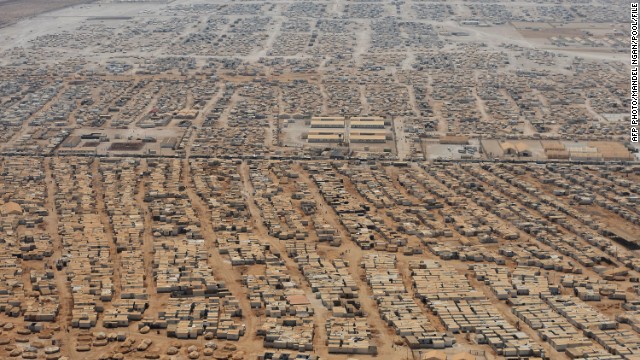 This is an aerial photograph of
the Zaatari refugee camp, situated eight kilometers from the
Jordan/Syria border, taken on July 18, 2013. As many as 150,000 people
are now living there, with more arriving every day.
This is an aerial photograph of
the Zaatari refugee camp, situated eight kilometers from the
Jordan/Syria border, taken on July 18, 2013. As many as 150,000 people
are now living there, with more arriving every day.
